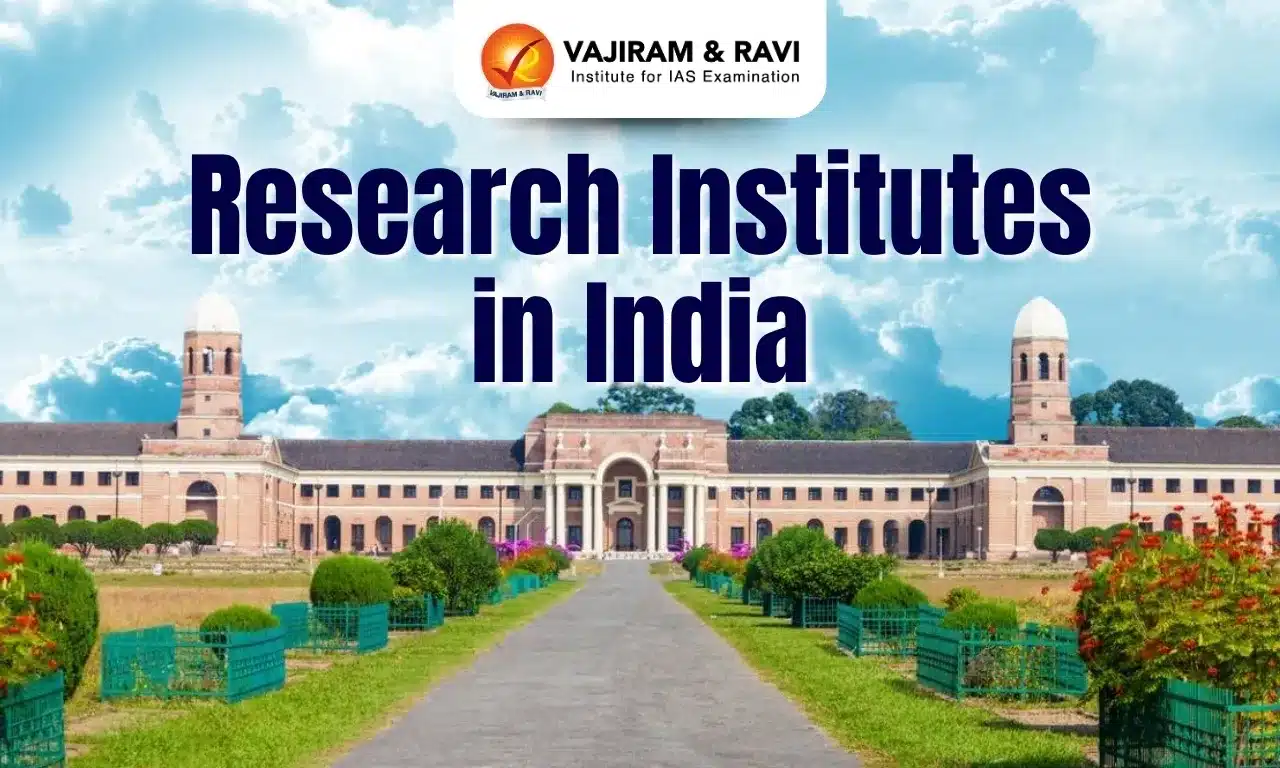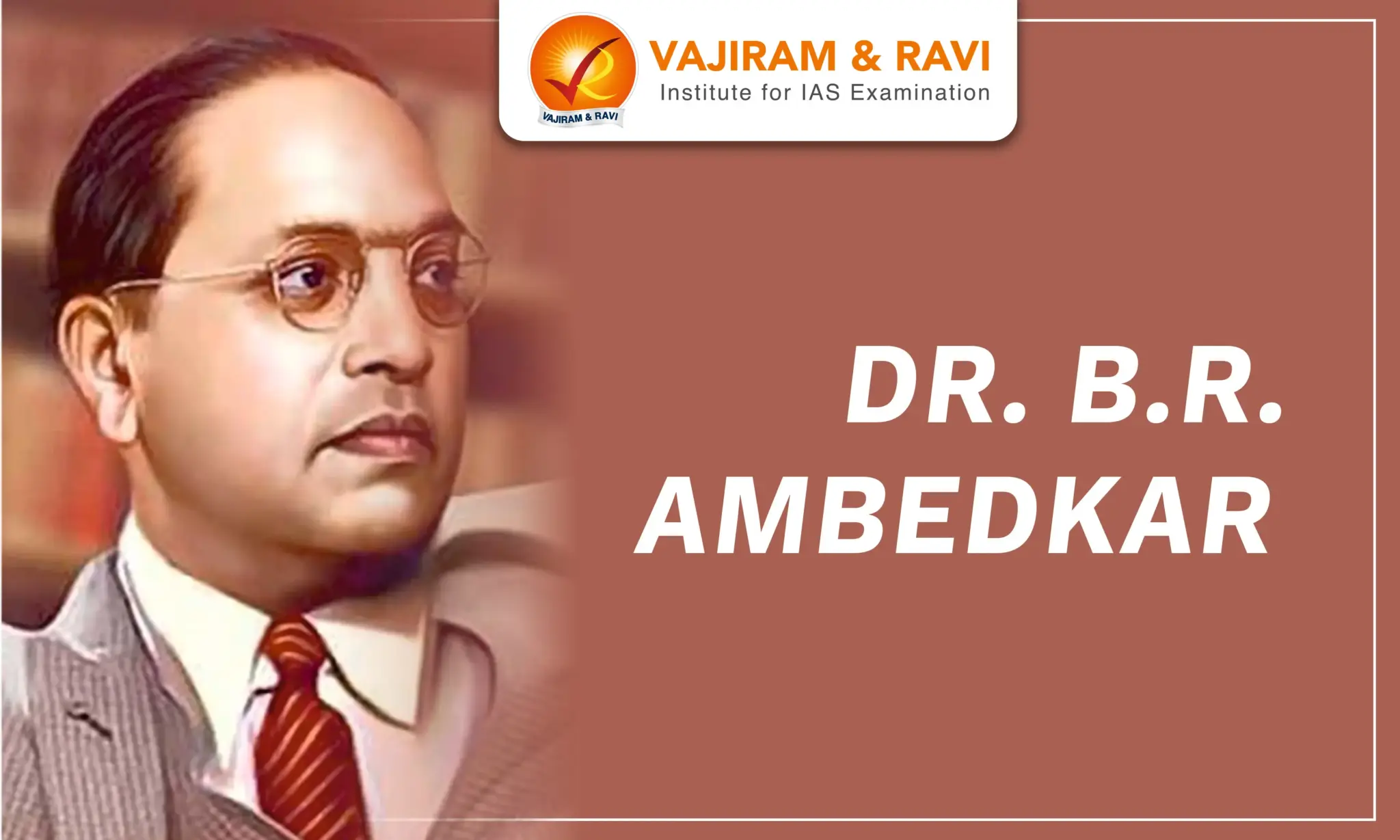Science and Technology is a fundamental base of any civilisation. Indian civilisation is no exception, where scientific value is deeply rooted in its culture and civilisation. In the contemporary world, scientific breakthroughs change the world and become important drivers of economic growth and development. These scientific breakthroughs are facilitated by the key research institutes in India and the organisations.
Various research institutes in India have been at the forefront of all scientific developments and advancement of new technologies in India.
Key Research Organisations in India
Various organisations in India are actively involved in facilitating as well as harnessing the potential of research and development. These organisations are being described below.
| Organisations | Descriptions |
|
Council of Scientific and Industrial Research (CSIR) Establishment: 1942 Headquarter: New Delhi |
- CSIR is a cutting edge R&D organisation dealing in diverse fields of science and technology. - It has a dynamic network of 37 national laboratories, 39 outreach centres, 1 Innovation knowledge base and three units with a pan-India presence.
|
|
Indian Space Research Organization (ISRO) Establishment: 1962 Headquarter: Bengaluru |
- It is a government space agency of India under the Department of Space. - It harnesses, sustains and augments space technology for national development, while pursuing space science research and planetary exploration. - The organisation is involved in harvesting the benefits of outer space for India and mankind. - It executes the Indian Space Programme primarily through various centres or units within ISRO. |
|
Defence Research and Development Organisation (DRDO) Establishment: 1942 Headquarter: New Delhi |
- DRDO falls under the aegis of the Ministry of Defence. - It has a network of more than 50 laboratories which are deeply engaged in developing defence technologies covering various disciplines. - It is involved in the indigenous development and production of strategic arms and weapon systems such as the Agni and Prithvi series of missiles; light combat aircraft, Tejas etc. |
|
Indian Council of Agricultural Research (ICAR) Establishment: 1929 Headquarter: New Delhi |
- ICAR is an autonomous organisation, registered as a society, under the Societies Registration Act, 1860. - It is under the Ministry of Agriculture and Farmers Welfare. - The Council is responsible for the research, development and education in agriculture. This includes horticulture, fisheries and animal sciences. - It supervises 113 ICAR institutes and 74 agricultural universities in India. |
|
Bhabha Atomic Research Centre (BARC)
Headquarter: Mumbai |
- To exploit nuclear energy for the benefit of the nation the Atomic Energy Establishment (AEET) was established in Trombay in January 1954.
- AEET was renamed Bhabha Atomic Research Centre (BARC) In 1966. - Its core function is to provide peaceful applications of nuclear energy in India.
|
|
Indian Council of Medical Research (ICMR) Establishment: 1911 (Indian Research Fund Association) Headquarter: New Delhi |
- Its vision is totranslate their research into action for improving the health of the population. - It conducts, coordinates and implements medical research for the benefit of the society. - It translates medical innovations into products or processes and introduces them into the public health system. |
|
Centre for Development of Advanced Computing (C-DAC) Establishment: 1988 Headquarter: Pune |
- C-DAC is the premier organisation for carrying out research and development in IT, Electronics and associated areas. - It comes under the aegis of the MeitY (Ministry of Electronics and Information Technology). - The setting up of C-DAC was the result of the denial of import of Supercomputers by the USA. - Since then C-DAC has been undertaking the building of multiple generations of Supercomputer starting from PARAM series to the latest AI supercomputer 'AIRAWAT'. |
|
Anusandhan National Research Foundation
Headquarter: Delhi |
- Anusandhan National Research Foundation act, 2023 provides for establishing the Anusandhan National Research Foundation (NRF). - It repeals the erstwhile Science and Engineering Research Board Act, 2008 and dissolves the Science and Engineering Research Board (SERB) set up under it. - It aims at equitable funding and democratisation of resources in research and academics. -It comes under the Ministry of Science and Technology. |
Key Scientific Research Institutes in India
Research institutions play a crucial role in its key area. It promotes innovation in diversified fields through research and development projects under the guidance of their parent organisations or sometimes, autonomously under the respective ministry and departments.
|
Indian Institute of Science (IISc) Establishment: 1909 Place: Bangalore |
- IISc was established by a visionary partnership between the industrialist Jamsetji Nusserwanji Tata, the Mysore royal family and the Government of India. - it was selected as an Institution of Eminence (IoE) by the Government of India in 2008. - It is mandated to provide for advanced instruction and to conduct original investigations in all branches of knowledge that are likely to promote the material and industrial welfare of India. |
|
Centre for Cellular & Molecular Biology (CCMB)
Place: Hyderabad |
- CCMB is a premier institute in the research of modern biology and operates under the guidance of the CSIR. - It has been accorded the status of a full-fledged national laboratory with its own Executive Committee and Scientific Advisory Council. |
|
Tata Institute of Fundamental Research Establishment: 1945 Headquarter: Mumbai |
- TIFR was founded with the support of Sir Dorabji Tata Trust under the vision of Dr. Homi Bhabha. - It receives funds from the Department of Atomic Energy (DAE), Government of India. - Sister institutes at
|
|
National Centre for Polar and Ocean Research (NCPOR) Establishment: 1998 Headquarter: Goa |
- Itis India’s premier Research and Development institution dedicated to the country’s research activities in the polar and Southern Ocean realms. - It operates under the Ministry of Earth Sciences. - Research Station:
|
|
Indira Gandhi Centre for Atomic Research (IGCAR) Establishment: 1971 Place: Kalpakkam, Tamil Nadu |
- Its objective is to conduct a broad based multidisciplinary programme of scientific research and advanced engineering. - Its mission is directed towards the development of sodium cooled Fast Breeder Reactor (FBR) technology in India.
|
|
The Harish-Chandra Research Institute (HRI) Establishment: 1975 Place: Prayagraj (Allahabad) |
- HRI is named after the mathematician Harish-Chandra. - It is a premier institution dedicated to research in Mathematics and Theoretical Physics.
|
|
Variable Energy Cyclotron Centre Establishment: 1977 Place: Kolkata |
- VECC is a constituent institute of Homi Bhabha National Institute (HBNI). - It is mandated to carry out research in experimental nuclear physics, radiation damage studies and isotope production for research and nuclear medicine. - VECC has 3 Cyclotrons:
|
|
Raja Ramanna Centre for Advanced Technology (RRCAT) Establishment: 1984 Place: Indore |
- RRCAT was established by the Department of Atomic Energy, India to expand the activities carried out at BARC, Mumbai, in two frontline areas namely Lasers and Accelerators. |
|
Institute for Plasma Research (IPR) Establishment: 1984 Place: Ahmedabad |
- It is an autonomous R&D organisation under the authority of the Department of Atomic Energy. - It is involved in theoretical and experimental studies in plasma science including basic plasma physics, magnetically confined hot plasmas and plasma technologies for industrial application. - It is the nodal agency to design, build and deliver India's contribution to ITER. |
|
Inter-University Centre for Astronomy and Astrophysics (IUCAA) Establishment: 1988 Place: Pune |
- It is an autonomous Institution of the University Grants Commission. - IUCAA, Institute for Plasma Research and Raja Ramanna Centre for Advanced Technology have been associated with theLIGO-India project. |
|
Institute of Nano Science and Technology (INST) Establishment: 2013 Place: Mohali |
- INST as an autonomous institution under the supervision of the Department of Science and Technology, has been established under the NANO mission (Mission on Nano Science and Technology).
|
|
National Institute of Biomedical Genomics (NIBMG) Establishment: 2009 Place: Kalyani, West Bengal |
- NIBMG is an autonomous institution that functions under the aegis of the Department of Biotechnology. - It is the first institute in India specifically devoted to research in Biomedical Genomics. - It works toward the prediction, prevention, and cure of diseases as well as giving insight into their development and progression. Additional text to be added here. |
Last updated on November, 2025
→ Check out the latest UPSC Syllabus 2026 here.
→ Join Vajiram & Ravi’s Interview Guidance Programme for expert help to crack your final UPSC stage.
→ UPSC Mains Result 2025 is now out.
→ UPSC Notification 2026 is scheduled to be released on January 14, 2026.
→ UPSC Calendar 2026 is released on 15th May, 2025.
→ The UPSC Vacancy 2025 were released 1129, out of which 979 were for UPSC CSE and remaining 150 are for UPSC IFoS.
→ UPSC Prelims 2026 will be conducted on 24th May, 2026 & UPSC Mains 2026 will be conducted on 21st August 2026.
→ The UPSC Selection Process is of 3 stages-Prelims, Mains and Interview.
→ UPSC Result 2024 is released with latest UPSC Marksheet 2024. Check Now!
→ UPSC Prelims Result 2025 is out now for the CSE held on 25 May 2025.
→ UPSC Toppers List 2024 is released now. Shakti Dubey is UPSC AIR 1 2024 Topper.
→ UPSC Prelims Question Paper 2025 and Unofficial Prelims Answer Key 2025 are available now.
→ UPSC Mains Question Paper 2025 is out for Essay, GS 1, 2, 3 & GS 4.
→ UPSC Mains Indian Language Question Paper 2025 is now out.
→ UPSC Mains Optional Question Paper 2025 is now out.
→ Also check Best IAS Coaching in Delhi




































